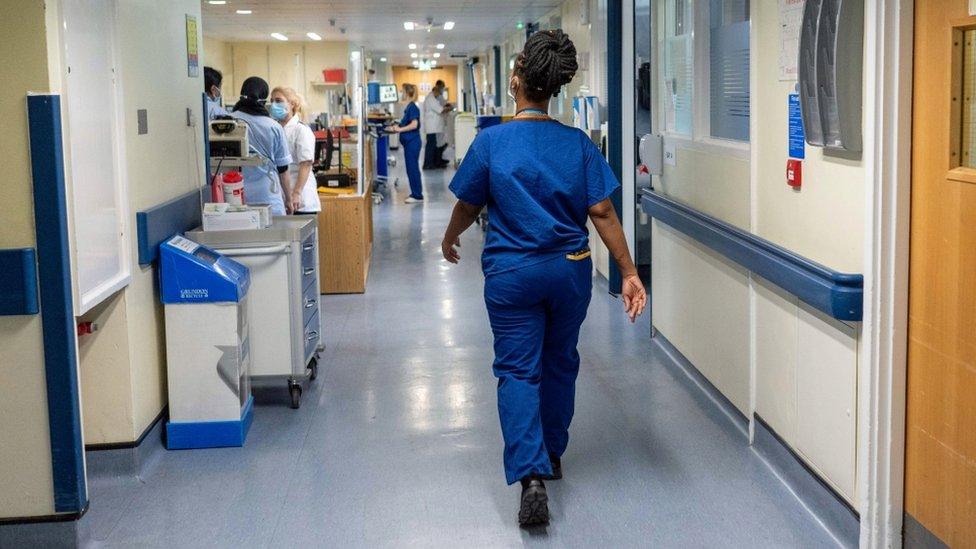Junior doctor striking over NHS 'abusive relationship'
- Published
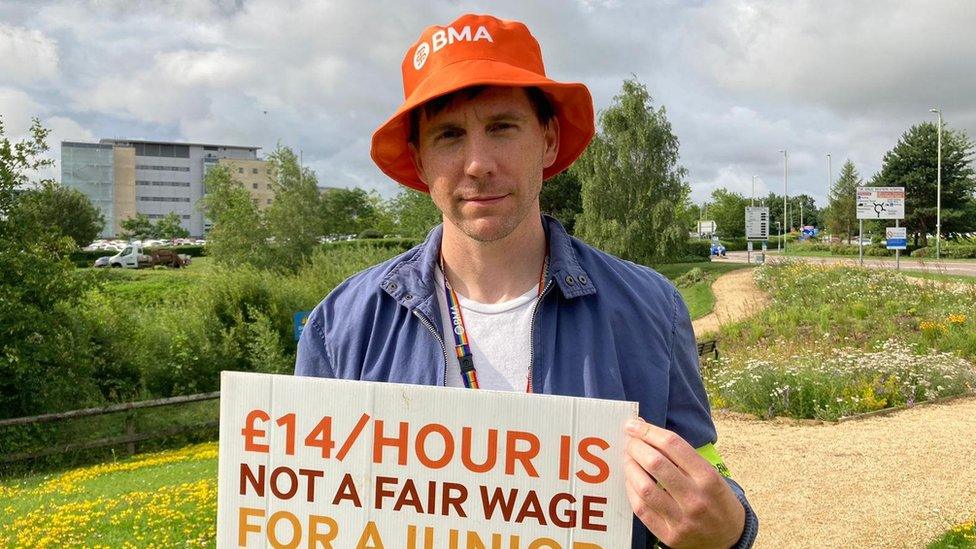
Junior doctor Andy Tait said he was struggling to pay for his exams
A junior doctor has joined a national five-day strike because they say the NHS feels like an "abusive relationship".
Dr Andy Tait, who works at Great Western Hospital in Swindon, is one of many calling for a 35% pay increase.
Junior doctors across the West have started their longest walkout over pay in NHS history, in what they say is 15 years of pay rises below inflation.
Health Secretary Steve Barclay said the pay demand was "unreasonable".
He added the strike by British Medical Association (BMA) members would put patient safety at risk.
Dr Tait said: "I want to stay in the NHS but at the same time it feels like an abusive relationship.
"We're not asking for 35% in one year, we're asking for it over time. People are leaving all the time due to the lack of pay or opportunities.
"It's incredibly tough. We've got patients receiving really poor care despite our best efforts because there's no resilience in the system."
The 6% pay rise announced today is in line with pay review body recommendations, but below the 35% that doctors have been asking for.
The Health Secretary says the 35% demand is not reasonable or affordable, arguing government departments will have to fund some of the increases out of existing budgets.
Ministers have repeatedly warned that borrowing money to increase pay for public sector workers, such as junior doctors and teachers, would increase inflation.
Thousands of planned appointments will be postponed while more senior doctors fill in to provide emergency care, before then going on strike themselves next week on Thursday and Friday.
People can still call 999 for life-threatening emergencies.
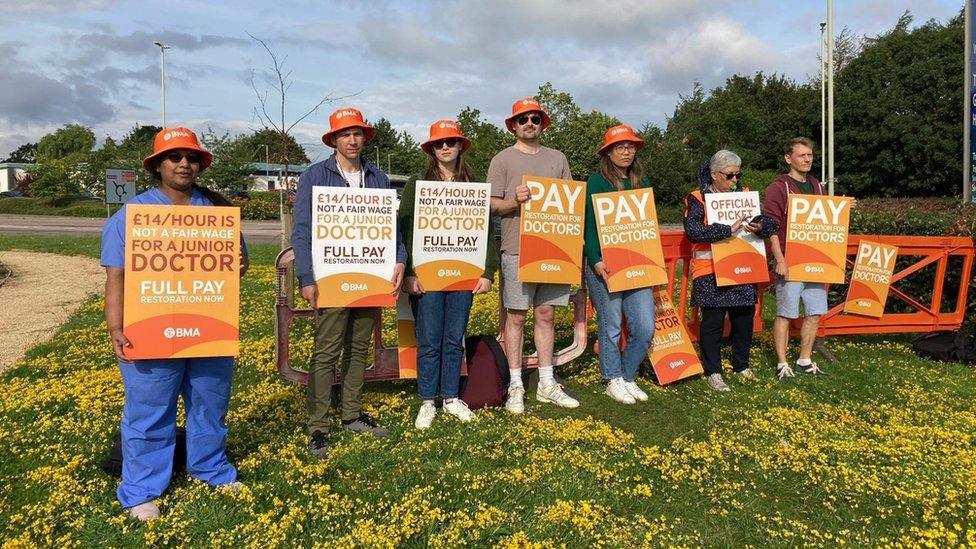
Andy Tait said overseas medical agencies were actively advertising to recruit British junior doctors, even on the picket lines
The trainee doctor said the lack of staff, particularly doctors, means as soon as someone is off work ill, they are "stretched".
"That impacts our training," he explained, because junior doctors then have to cover more shifts.
Doctors in training are currently paid £14 an hour.
"If you increase it to £19 an hour, that doesn't seem unreasonable for someone who could be resuscitating you," said Dr Tait.
In Bristol, Dr Sam Taylor-Smith, the junior doctor committee chair for the British Medical Association's Severn region, said: "I don't think the average person on the street would mind a doctor looking after their loved ones to be paid £19 an hour."
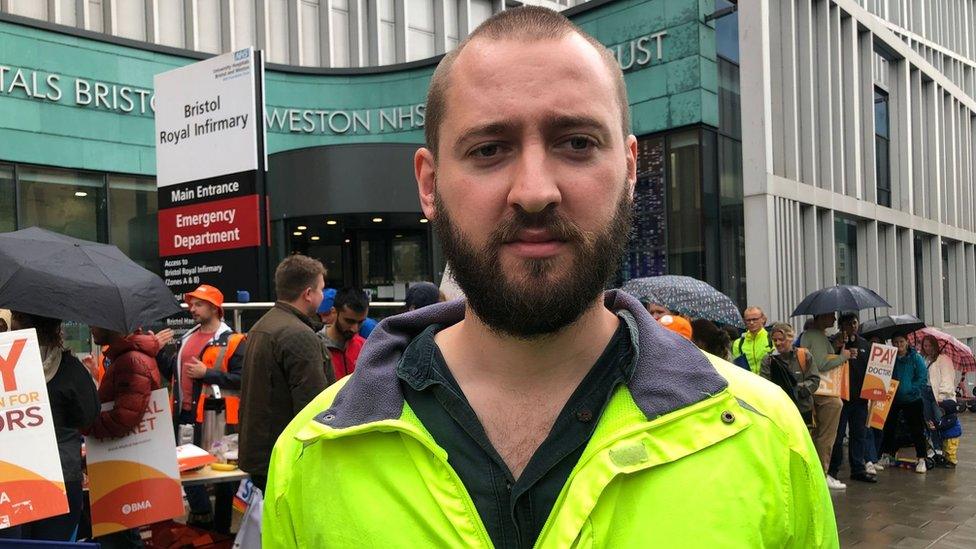
Dr Taylor-Smith said: "We're asking for a junior doctor working overnight on a weekend to go from being paid £14 an hour to £19 an hour"
Dr Anita Annakesavan, also a junior doctor at Great Western Hospital, said: "I love being at work, I want to be at work, but I don't feel like I'm valued at work."
"I'd rather be inside doing what I do best.
"I think we can still not just save the NHS, but make it shine. It is the best system in the world.
"I left my country to be here to serve the people... and I feel I will spend the best years of my life to watch the NHS crumble.
"I have an obligation to set things right in my own way and that is what I'm doing."
Years of apologising
Dr Tait apologised to anyone who was affected during the strikes and said their colleagues were covering them.
Charlie Nye, a junior doctor at Gloucestershire Royal Hospital, also apologised and said: "We're here because we feel without an improvement to pay, working conditions to junior doctors, the NHS waiting list and care will continue to deteriorate over the next few years.
"I've spent the last few years of my career apologising to patients for delays in their care."
A&E care is available but patients are advised to contact NHS 111 or the nearest pharmacy for more minor health concerns.
The five-day strike in England runs until 07:00 BST on Tuesday 18 July.

Follow BBC West on Facebook, external, Twitter, external and Instagram, external. Send your story ideas to: bristol@bbc.co.uk , external
- Published13 July 2023
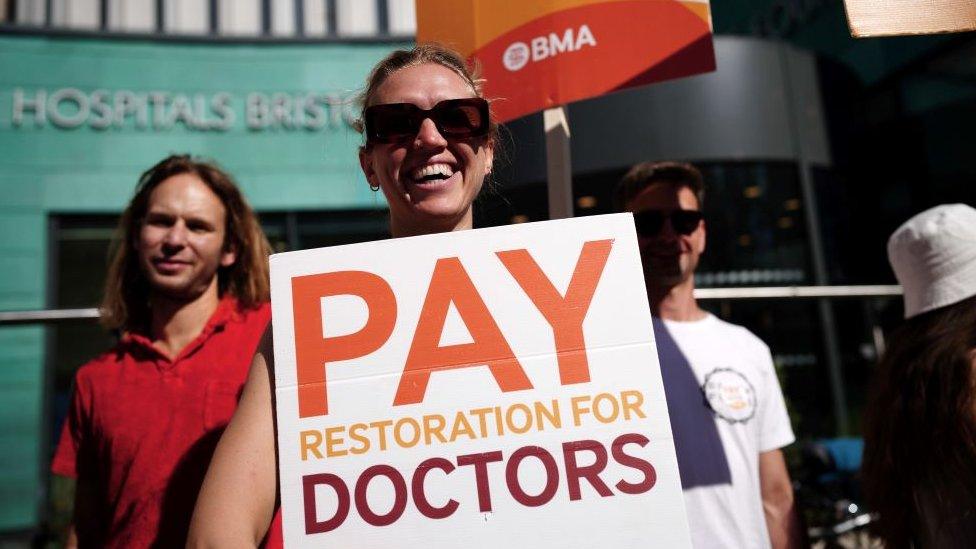
- Published11 April 2023
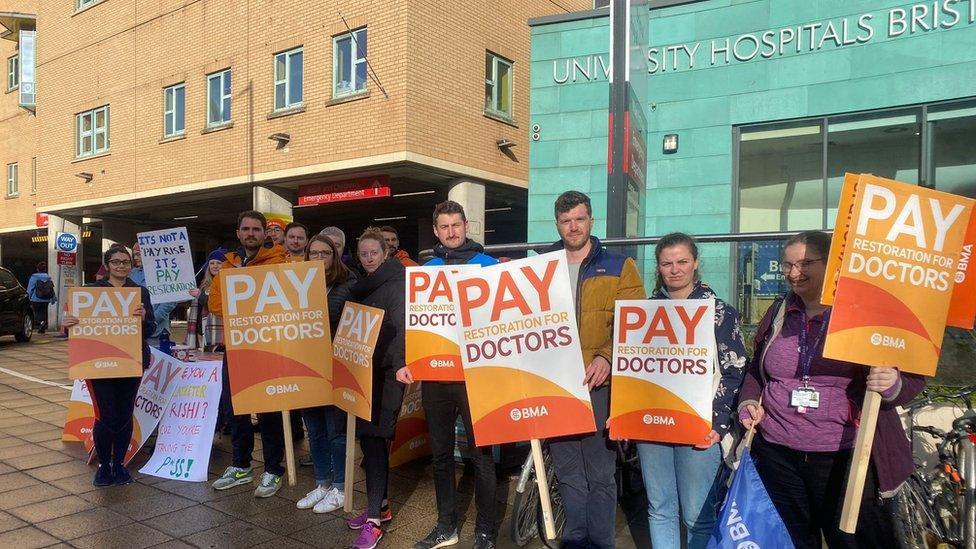
- Published7 July 2023
